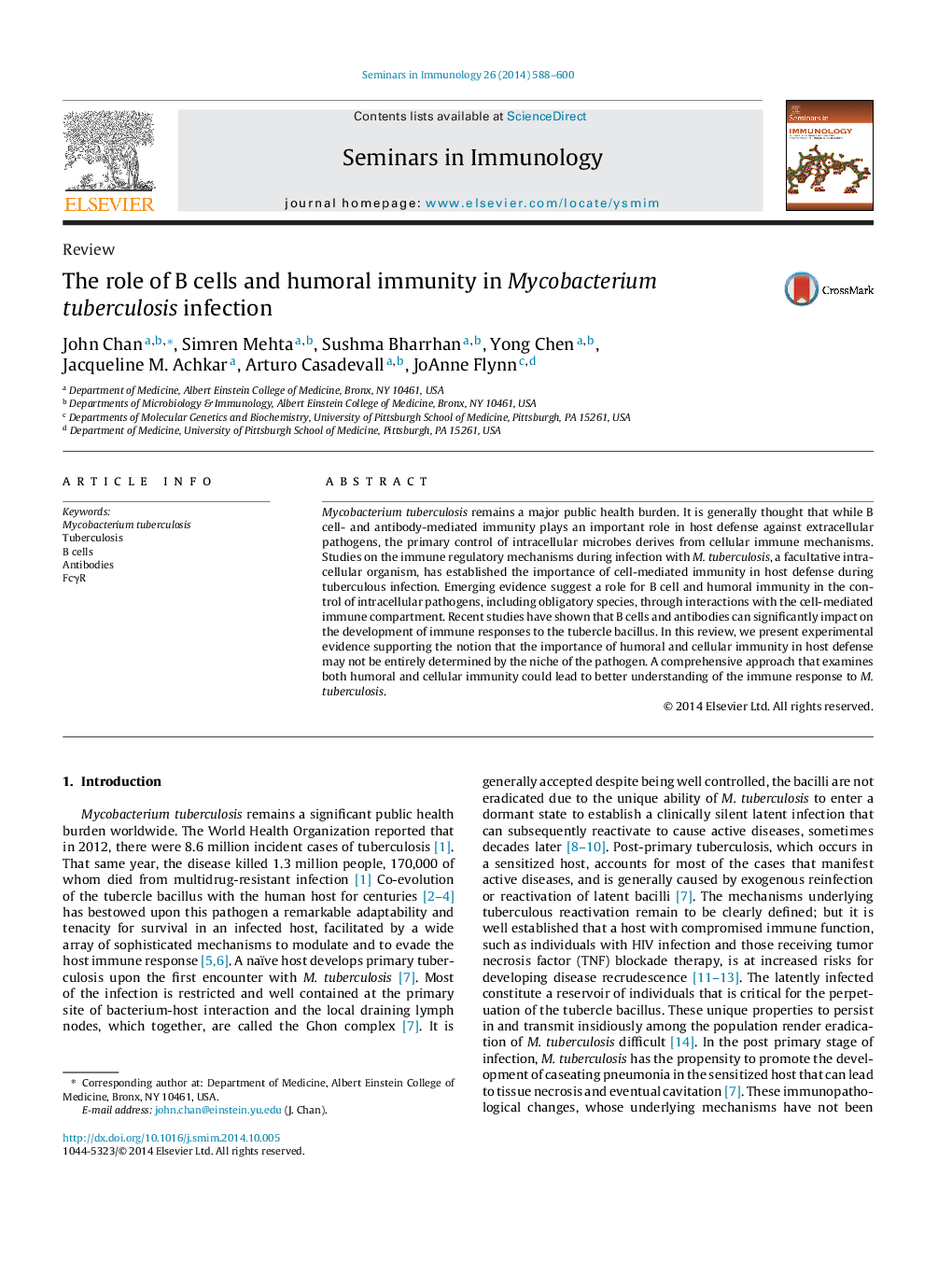| Article ID | Journal | Published Year | Pages | File Type |
|---|---|---|---|---|
| 6125897 | Seminars in Immunology | 2014 | 13 Pages |
Abstract
Mycobacterium tuberculosis remains a major public health burden. It is generally thought that while B cell- and antibody-mediated immunity plays an important role in host defense against extracellular pathogens, the primary control of intracellular microbes derives from cellular immune mechanisms. Studies on the immune regulatory mechanisms during infection with M. tuberculosis, a facultative intracellular organism, has established the importance of cell-mediated immunity in host defense during tuberculous infection. Emerging evidence suggest a role for B cell and humoral immunity in the control of intracellular pathogens, including obligatory species, through interactions with the cell-mediated immune compartment. Recent studies have shown that B cells and antibodies can significantly impact on the development of immune responses to the tubercle bacillus. In this review, we present experimental evidence supporting the notion that the importance of humoral and cellular immunity in host defense may not be entirely determined by the niche of the pathogen. A comprehensive approach that examines both humoral and cellular immunity could lead to better understanding of the immune response to M. tuberculosis.
Related Topics
Life Sciences
Immunology and Microbiology
Immunology
Authors
John Chan, Simren Mehta, Sushma Bharrhan, Yong Chen, Jacqueline M. Achkar, Arturo Casadevall, JoAnne Flynn,
